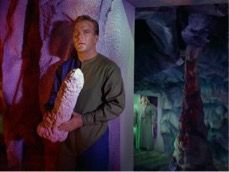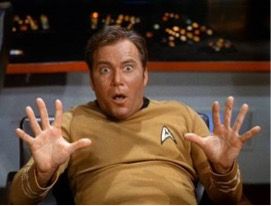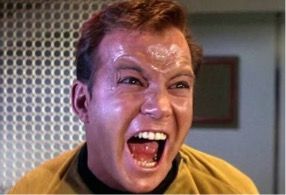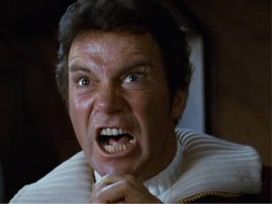What exactly was so special and unique about Star Trek?
I don't know about necessarily unique but I think there was a lot that was special in the original series and spin-offs that was either a lot less prevalent or less well-done in the Abrams movies.
1.) Star Trek was socially progressive.
Well this has been debated ad nauseam and more or less proven to be fairly inaccurate. While, TOS did present an ideal social setting, it certainly wasn't as progressive as a lot of people seem to think it was. There's been a lot of revisionism and rosy glasses syndrome when it comes to this aspect. And by the mid 70s, (when the show actually became popular) it was almost old-fashioned in many ways.
The Berman-era stuff really wasn't socially progressive at all. Its "better future" conceit was naïve, puerile sentiment at best.
Well it primarily was entertainment and so it was definitely not radical but I think it was also definitely liberal and even progressive. I think even the mixed, conflicted views with regards to war the original had in "A Taste of Armageddon", "Errand of Mercy" and "A Private Little War" were pretty progressive for network television in the '60s (sure there was some anti-anti-Communist films and TTZ of the same period but that doesn't mean it's not a fairly controversial/progressive view). The original also considered overpopulation and backed birth control just a few years after it became nationally legal. That Spock never really lost his his belief that Vulcan ways were best ("The Cloud Minders" flirting aside) and yet was generally professional and respectful and intrigued with humanity and became close friends with Kirk and even somewhat McCoy is a strong point for diversity.
The reboot movies, on the other hand, have Spock becoming humanlike and favoring revenge pretty often and Kirk tending to be contemptuous of Spock's perspectives and only rejecting a rather caricaturish version of a warmonger.
2.) Star Trek was cerebral and provocative.
Not really. Nothing Trek has ever presented hadn't already been discussed in a high school philosophy class. Most of the ideals overly simplistic and condescending in tone (As if they were made solely of making the viewer believe the show was smarter than it really was.) The "Needs of the many" BS is the perfect example At best, it's just a dumbed-down facsimile of Benthamism utility. At worst, it's fallacious nonsense--and therefore not logical at all.
I think the shows are highly provocative, whether someone with godlike or hyper-advanced abilities will become evil, how much forgiveness can be or should be given to an adolescent with godlike powers, how much of a dark side do people have and what would they be like without it; "Space Seed" (after pointing out the dangers of "supermen") ends with one of Khan's followers refusing to support him completely but then going along with him into exile (and Khan admiring her) and Kirk's view, although it is pretty underdeveloped, that Khan could do a lot of good in a unique environment.
The spin-offs have the characters refusing to end a drug addiction, Janeway eliminating one of her crewmembers to restore crewmembers who can't directly speak for themselves, Worf refusing to save an enemy's life, debates about how quickly former enemies can and should become friendly, how much privacy to maintain in light of a possible or true threat, characters getting brainwashed. In general there's tension between individual rights and collective utility.
The reboot films present one caricaturish villain to reject but tend to follow his attitude, be merciless to really bad villains, otherwise. "The Wounded" wasn't one of Trek's best installments but it was much better and more thought-provoking than ID with the villain being fanatical and yet the threat he was for preemption against very likely real and Picard recognizing it as real and believing both that Maxwell had no right to commit his violence and that the probability of the threat being real shouldn't be ignored or whitewashed.
in comparison by some of the TV around today, Star Trek (in any form) looks pretty silly.
I don't think most of TV today has heroes condemning genetic engineering, declaring that man might not be meant for paradise is or being tolerant of suicide.





